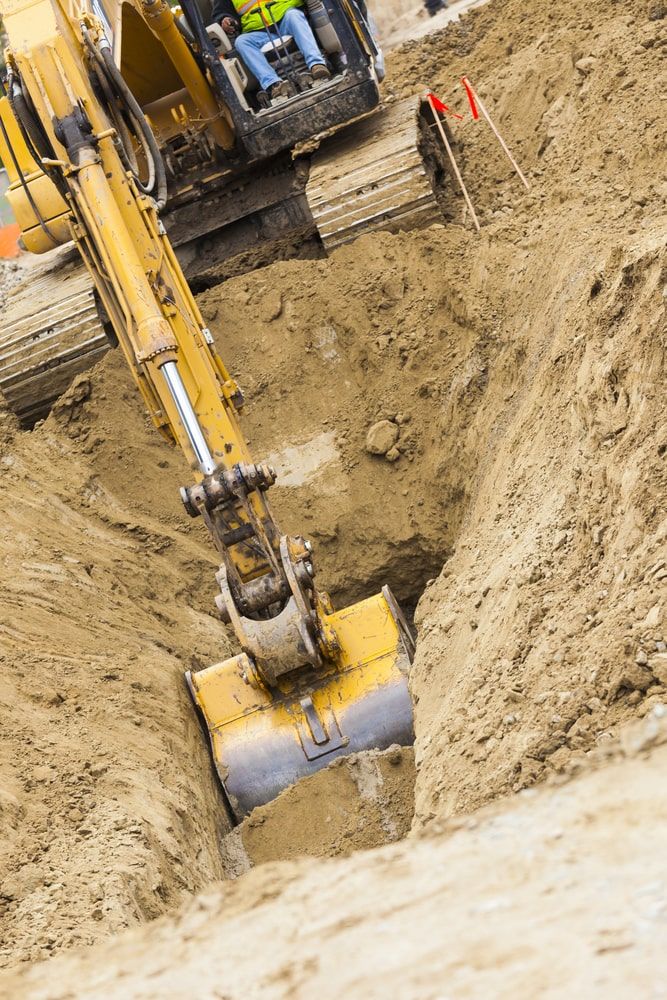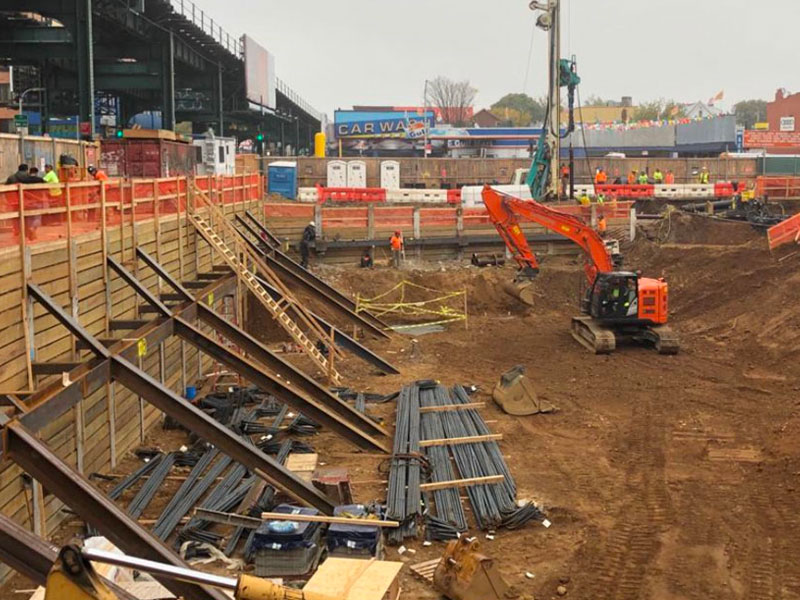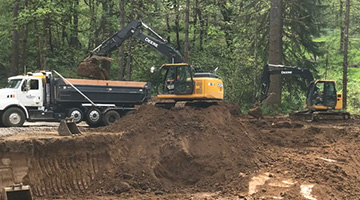Commercial Lancaster Trenching - Trenching Providers for Companies in Lancaster
Commercial Lancaster Trenching - Trenching Providers for Companies in Lancaster
Blog Article
Comprehensive Excavation Approaches: Grasping the Fundamentals for Success
The cautious preparation, exact implementation, and thorough interest to information called for in excavation tasks require a comprehensive technique that encompasses numerous essential aspects. The true proficiency exists not simply in comprehending these principles however in perfectly integrating them to navigate the complexities of excavation projects with skill.
Recognizing Excavation Job Planning

The initial phase of any type of excavation job is the preparation stage, where essential decisions are made that can considerably impact the outcome of the project. Comprehending the job budget, timeline, and scope restrictions is critical for producing a detailed excavation strategy that makes certain the project's success.
One key facet of excavation task planning is the development of an in-depth timeline that lays out the sequence of target dates, activities, and turning points. By thoroughly taking into consideration all these variables during the preparation phase, excavation jobs can be carried out effectively and properly, leading to successful end results - lancaster trenching.
Soil Evaluation and Website Evaluation
Performing comprehensive dirt evaluation and site evaluation is an important step in the preparation phase of any excavation project. Soil evaluation entails figuring out the composition, structure, and properties of the soil at the excavation website. This information is crucial for comprehending the dirt's bearing capability, wetness web content, and potential for erosion, which are essential variables in establishing the excavation methods and equipment required for the task.
Website assessment goes past dirt analysis and encompasses a more comprehensive assessment of the total website conditions. This evaluation consists of recognizing any type of possible dangers, such as below ground energies, ecological worries, or unpredictable terrain, that might affect the excavation process. By completely assessing the site, task managers can develop effective excavation approaches that prioritize safety, efficiency, and ecological defense.
Making use of advanced technologies like ground-penetrating radar, dirt tasting, and drone studies can enhance the accuracy and efficiency of dirt analysis and site evaluation. Investing time and resources in these initial actions can inevitably conserve time and protect against costly hold-ups or complications during the excavation process.
Tools Choice and Utilization
Efficient excavation projects count heavily on tactical tools choice and application to make sure optimal efficiency and productivity. Selecting the right tools for the job is essential in making best use of efficiency and lessening downtime. Factors such as the sort of soil, deepness of excavation, and project scope play a substantial role in determining one of the most appropriate devices for the task handy.

Along with selecting the proper devices, appropriate use is crucial to task success. Operators must be trained to handle the equipment safely and efficiently - septic ohio. Normal upkeep checks and prompt repair lancaster excavation services aid prevent breakdowns and ensure consistent efficiency throughout the task
Safety Measures and Regulations Compliance
In the world of excavation tasks, prioritizing safety and security actions and compliance with policies is vital to making certain a protected and lawfully sound functional atmosphere. Precaution include a variety of practices, consisting of carrying out complete website analyses, executing proper signs and barriers, and offering sufficient safety and security training for all workers associated with the excavation procedure. Adherence to regulations, such as OSHA needs in the USA, makes certain that the excavation job fulfills the essential criteria to secure workers, onlookers, and the surrounding environment.

Tracking Progression and Adjusting Methods
How can forecast managers successfully track the advancement of excavation jobs and adapt their techniques appropriately to enhance end results? Surveillance progression is vital for ensuring that excavation jobs stay on track and satisfy target dates.

Conclusion
Finally, grasping the fundamentals of detailed excavation methods is necessary for the success of any task. By comprehending project preparation, examining soil and website conditions, picking suitable equipment, abiding by security policies, and checking development, task managers can ensure a efficient and smooth excavation procedure. Executing these more helpful hints approaches will certainly bring about successful results and minimize prospective risks or problems throughout the excavation project.
The preliminary stage of any excavation job is the preparation stage, where critical choices are made that can significantly affect visit the website the result of the project. Comprehending the task scope, budget, and timeline constraints is critical for creating an extensive excavation plan that makes certain the project's success.
Exactly how can forecast supervisors properly track the advancement of excavation jobs and adjust their approaches accordingly to optimize outcomes? By carefully monitoring development and being prepared to adjust strategies, task supervisors can improve the overall success of excavation projects.
By recognizing job planning, assessing dirt and website problems, picking ideal devices, abiding with security guidelines, and keeping an eye on progression, task managers can make sure a smooth and reliable excavation process.
Report this page